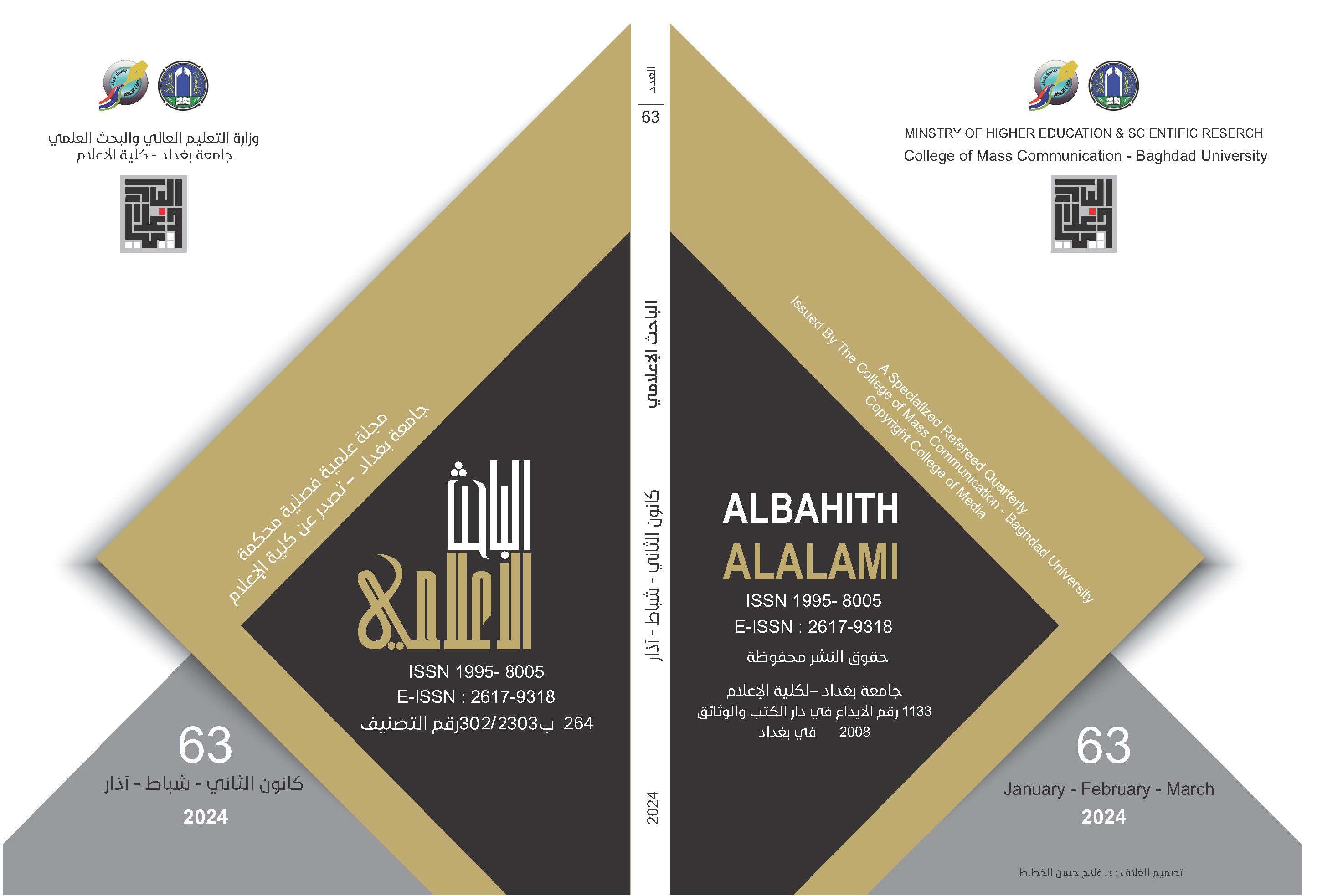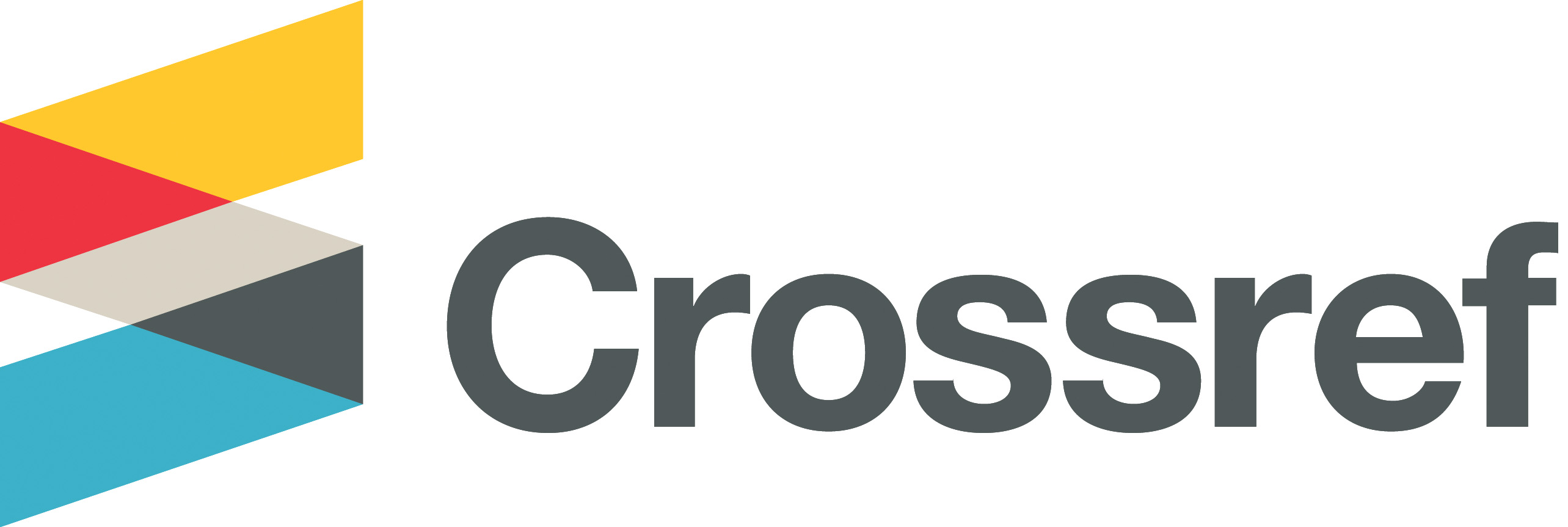Iraqi Journalists' representations of their professional identity
A survey study
DOI:
https://doi.org/10.33282/abaa.v16i63.1183Keywords:
Representations, Iraqi journalists, Roles, Professional identityAbstract
The research aims to explore the nature of representations of Iraqi journalists' professional identity. It is classified as descriptive research and utilizes the descriptive analytical survey method. A purposive sample of (80) Iraqi journalists was employed, and a questionnaire tool was utilized. Several conclusions were reached, including: Iraqi journalists perform functional roles consistent with the functions of journalism, most notably: providing the public with information, monitoring governmental performance, conveying public opinion to decision-makers, and raising awareness of civil activism effectively. Influences originating within the journalism profession dominate the performance of Iraqi journalists in their professional work more than those exerted from outside. The key elements shaping Iraqi journalists' representations of their professional identity focus on informing the public about hidden issues and providing assistance to them. There were no statistically significant differences in the demographic variables of Iraqi journalists and their representations of their professional identity. There exists a positive correlation between the nature of the functional roles performed by Iraqi journalists and the elements shaping their representations of their professional identity, as well as a positive correlation between the nature of these roles and Iraqi journalists' representations of their professional identity.
Downloads
References
Abric, J.-C. (1994). Pratiques sociales et représentations. Paris: Presses universitaires de France.
Abric, J.-C. (2003). Méthodes d'étude des représentations sociales. Erès, Ramonville Saint-Agne.
Bem, D. J. (1967). Self-perception: An alternative interpretation of cognitive dissonance phenomena. Psychological Review, 74(3), 183-200. https://doi.org/10.1037/h0024835
Bem, D. J. (1972). Self-Perception Theory11Development of self-perception theory was supported primarily by a grant from the National Science Foundation (GS 1452) awarded to the author during his tenure at Carnegie-Mellon University. In L. Berkowitz (Ed.), Advances in Experimental Social Psychology (Vol. 6, pp. 1-62). Academic Press. https://doi.org/10.1016/S0065-2601(08)60024-6
Berganza, R., Lavín, E., & Piñeiro-Naval, V. (2017). Spanish journalists’ perception about their professional roles. Comunicar, 25(51), 83-92. https://doi.org/10.3916/c51-2017-08
Burnat, H. B. A. (2018). The concept of media quality in a changing environment: A descriptive exploratory study on a sample of Tunisian journalists. Truth Journal for Humanities and Social Sciences, 17(1), 92 - 118. https://www.asjp.cerist.dz/en/article/53056
Khayira, B. A. S. (2016). Journalists' representations and uses of social networking sites: An analytical field study on a sample of Algerian journalists (Ph.D. dissertation). Faculty of Social Sciences, University of Abdelhamid Ibn Badis - Mostaganem. https://bit.ly/3P6l7jv
Nygren, G., & Stigbrand, K. (2014). The Formation of a Professional Identity. Journalism Studies, 15(6), 841-858. https://doi.org/10.1080/1461670X.2013.834163
Bin Salem, K. (2020). Verified journalism in Tunisian television channels between representation and practice. Algerian Journal of Media and Public Opinion Research, 3(1), 259-280. https://www.asjp.cerist.dz/en/article/125693
Wiik, J. (2009). Identities under construction: professional journalism in a phase of destabilization. International Review of Sociology, 19(2), 351-365. https://doi.org/10.1080/03906700902833676
Zein Aldin, B. (2019). Reporting On Reporters: Self-Perceptions Of Journalists Towards Their Job Identity In Private Newspapers In Egypt [Master's Thesis, the American University in Cairo]. AUC Knowledge Fountain. https://fount.aucegypt.edu/etds/753
Downloads
Key Dates
Received
Revised
Accepted
Published
Issue
Section
License
Copyright (c) 2024 Azhar Sabeeh Ghaintab

This work is licensed under a Creative Commons Attribution 4.0 International License.
Authors retain copyright and grant the journal right of first publication with the work simultaneously licensed under a Creative Commons Attribution License (CC BY 4.0) that allows sharing the work with recognition of authorship and initial publication in ABBA journal.


















